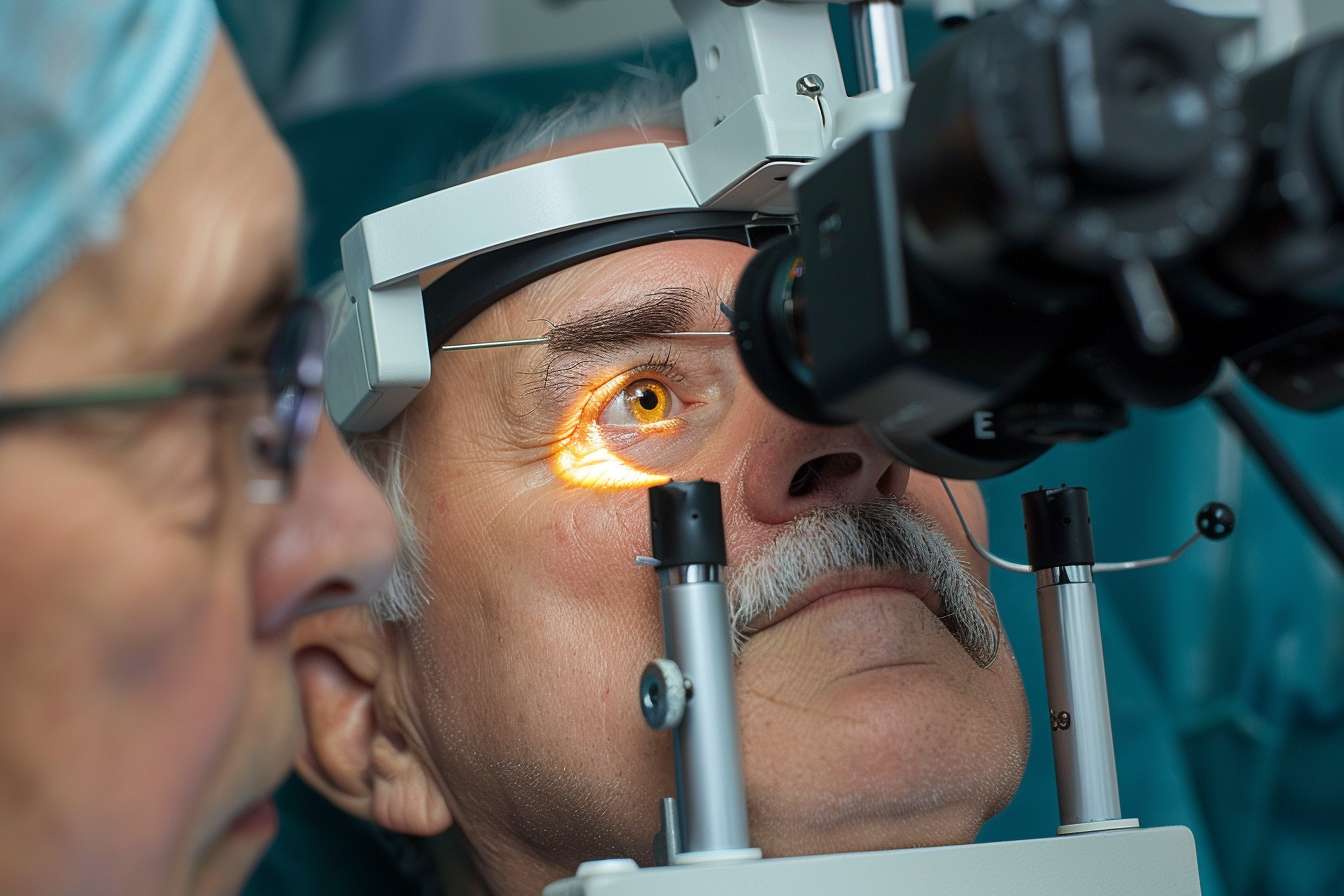Revolutionizing Vision: Understanding Laser Eye Surgery
Laser eye surgery has transformed the way we approach vision correction, offering a potential solution for millions struggling with refractive errors. This innovative procedure has gained popularity due to its effectiveness in reducing or eliminating the need for glasses and contact lenses. As technology advances, more people are considering laser eye surgery as a viable option for improving their eyesight. In this article, we'll explore the intricacies of laser eye surgery, its benefits, and what patients can expect throughout the process.

How Does Laser Eye Surgery Work?
Laser eye surgery, also known as LASIK (Laser-Assisted In Situ Keratomileusis), is a precise and sophisticated procedure that reshapes the cornea to correct vision problems. The surgery involves using a highly focused laser to remove microscopic amounts of tissue from the cornea, altering its curvature to improve focus. This process can correct nearsightedness, farsightedness, and astigmatism by ensuring that light entering the eye is properly focused on the retina.
During the procedure, the surgeon creates a thin flap in the cornea using either a microkeratome blade or a femtosecond laser. This flap is then lifted to expose the underlying corneal tissue. An excimer laser is then used to remove precise amounts of corneal tissue, reshaping it according to the patient’s specific vision needs. After the reshaping is complete, the flap is repositioned, acting as a natural bandage.
What Are the Benefits of Laser Eye Surgery?
Laser eye surgery offers numerous advantages that have made it an increasingly popular choice for vision correction. One of the most significant benefits is the potential for dramatically improved vision without the need for corrective lenses. Many patients achieve 20/20 vision or better after the procedure, reducing or eliminating their reliance on glasses or contacts.
Another key benefit is the quick recovery time associated with laser eye surgery. Most patients experience improved vision within 24 hours of the procedure and can return to normal activities within a few days. The surgery itself is typically painless and takes only about 15 minutes per eye, making it a convenient option for those with busy lifestyles.
Laser eye surgery also offers long-lasting results. While some patients may experience slight changes in their vision over time, the majority enjoy stable, improved eyesight for many years after the procedure. This long-term effectiveness can lead to significant cost savings on glasses, contact lenses, and related eye care products over time.
What Does the Eye Laser Procedure Involve?
The eye laser procedure is a multi-step process that begins well before the actual surgery. Initially, patients undergo a comprehensive eye exam to determine their eligibility for the procedure. This exam includes measuring corneal thickness, pupil size, and overall eye health.
On the day of the surgery, the patient’s eyes are numbed with anesthetic drops. The surgeon then creates the corneal flap and uses the excimer laser to reshape the cornea. The entire procedure typically takes less than 30 minutes for both eyes.
After the surgery, patients are given protective shields for their eyes and instructions for post-operative care. Follow-up appointments are scheduled to monitor the healing process and ensure optimal results.
How Should One Prepare for Laser Eye Surgery?
Proper preparation is crucial for a successful laser eye surgery experience. In the weeks leading up to the procedure, patients are typically advised to stop wearing contact lenses, as they can alter the shape of the cornea. It’s also important to arrange for transportation on the day of surgery, as patients will not be able to drive immediately after the procedure.
Patients should discuss any medications they’re taking with their surgeon, as some may need to be temporarily discontinued. It’s also recommended to avoid wearing eye makeup or using lotions and perfumes on the day of surgery to reduce the risk of infection.
Mental preparation is equally important. Patients should have realistic expectations about the outcomes of the surgery and be prepared for the recovery process, which may involve some temporary discomfort and vision fluctuations.
Can Laser Surgery Be Performed After Cataract Removal?
Laser eye surgery can indeed be performed after cataract removal, but it’s important to understand the specific circumstances and considerations involved. After cataract surgery, some patients may still experience refractive errors that affect their vision. In these cases, a procedure called laser vision correction or enhancement may be recommended.
This post-cataract laser treatment is typically performed to fine-tune vision and address any residual refractive errors. It’s usually done several months after the initial cataract surgery to ensure the eye has fully healed and vision has stabilized. The procedure is similar to traditional LASIK but may be tailored to address the unique needs of post-cataract patients.
It’s crucial for patients considering laser surgery after cataract removal to consult with their ophthalmologist to determine if they are suitable candidates and to discuss the potential benefits and risks associated with the procedure.
| Procedure | Provider | Cost Estimation |
|---|---|---|
| LASIK | TLC Laser Eye Centers | $2,000 - $3,000 per eye |
| PRK | LasikPlus | $1,500 - $2,500 per eye |
| SMILE | Nvision Eye Centers | $2,500 - $3,500 per eye |
| Refractive Lens Exchange | Optical Express | $3,000 - $4,500 per eye |
Prices, rates, or cost estimates mentioned in this article are based on the latest available information but may change over time. Independent research is advised before making financial decisions.
Laser eye surgery has revolutionized vision correction, offering a safe and effective alternative to traditional corrective lenses. While the procedure involves sophisticated technology and careful preparation, its benefits can be life-changing for many patients. As with any medical procedure, it’s essential to consult with a qualified eye care professional to determine if laser eye surgery is the right choice for your individual needs and circumstances.
This article is for informational purposes only and should not be considered medical advice. Please consult a qualified healthcare professional for personalized guidance and treatment.




